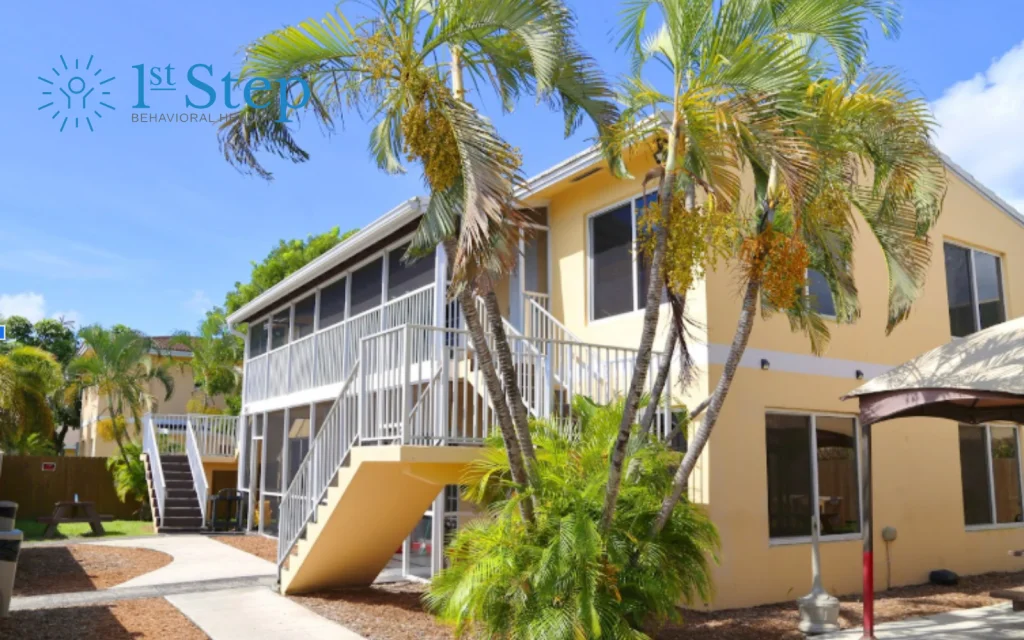Alcohol and drug addiction can affect anyone, regardless of their age, race, gender, or socioeconomic status. While many people believe people struggling with addiction are unemployed, this is not accurate. In fact, about 70% of people with substance abuse and addiction work.
Executive rehab programs offer individualized treatment plans and ongoing support for working people with substance use disorder (SUD). These programs are designed to meet the unique needs of professionals with SUD and mental health issues.
This article will explore how professional addiction treatment programs can support working people’s recovery journeys. You will learn:
- What sets rehab for executives apart from other treatment programs
- What to expect in professional rehab programs
- Where to find comprehensive rehab and recovery support programs
If you or a loved one struggles with addiction, you are not alone. Find comprehensive rehab and recovery support programs at First Step Behavioral Health. Learn more about our programs or schedule an intake appointment by contacting us today.
Rehab for Professionals: An Overview
Anyone can develop drug or alcohol addiction. Addiction does not discriminate, and people of all walks of life can struggle with it.
People may begin to use drugs or alcohol for many reasons. Some may experiment with addictive substances to fit in with peers or enhance their performance in some way. Others may simply be curious about the effects of these substances.
Addiction can impact every part of a person’s life, including their ability to work. CEOs, medical professionals, lawyers, and other executives may need a high level of treatment and support to stop using addictive substances.
Professionals with substance use disorder (SUD) require specialized treatment programs. Rehab for professionals must be adaptable and provide varying levels of care to meet a wide range of needs.
Rehab for executive programs are different than typical treatment programs. These intensive treatment programs provide high-quality treatment, including:
- Medical detox programs
- Individual therapy sessions
- Group therapy
- Cognitive behavioral therapy (CBT) and other forms of talk therapy
- Relapse prevention education
In addition to these evidence-based therapies, executive rehab programs may also provide:
- Business suites that allow professionals to stay engaged at work
- High-speed internet access
- Phones, printers, and other office equipment
- Private rooms
People in executive rehab programs may be able to work on their own laptops and other devices, which is not a standard feature in other treatment programs.
Executive rehab programs may also focus on giving people tools to manage stress and improve daily functioning. These specialized programs may help people overcome addiction and return to work quickly.
What to Expect in Rehab for Executives
Each person has their own unique needs throughout addiction recovery. There are many types of addiction treatment and several levels of care. People may attend inpatient or outpatient rehab, depending on their needs.
Executive rehab programs may offer flexible treatment options for people to continue working. Busy professionals may have the time and equipment they need to stay engaged in the workplace and communicate with colleagues.
Rehab programs typically happen in stages. Here is an overview of what to expect.
Assessment
Before beginning treatment, a medical professional or addiction specialist assesses each person’s recovery needs. The assessment consists of:
- A medical health history
- A mental health history
- Questions about past and current substance use
- Family history of SUD
- Lab testing
- Physical examination
This assessment will allow the treatment team to create the most effective recovery plan for each person.
Detox
During detox, a person’s body rids itself of drugs, alcohol, or other toxins. People may experience uncomfortable or dangerous withdrawal symptoms. A medically-supported detox program provides medications, emotional support, and holistic therapies to manage withdrawal symptoms and ensure safety.
Treatment
A professional rehab program consists of evidence-based therapies and holistic care. This care allows people to identify and address the roots of their addiction.
Executive rehab programs may include:
- Behavioral therapies
- Medical care and medications
- Mental health treatment, including behavioral therapies, medications, and specialized therapies
- Individual, group, and family counseling
- Holistic therapies like creative expression, mindfulness, exercise, and nutrition support
- Relapse prevention education
- Coping skills
- Aftercare planning
People may begin their recovery program in an inpatient or residential setting before transitioning into outpatient care.
Aftercare
It isn’t possible to cure addiction. People must learn skills to manage this condition and reduce the risk of relapse.
An aftercare plan can help people stay on track in recovery. It might include:
- 12-step meetings
- Regular mental health and medical care
- Additional types of addiction treatment
- Individual or group therapy
Treatment team members will help busy professionals create realistic, supportive aftercare programs.
It can be challenging to overcome addiction, but getting treatment can help. Don’t put off treatment for another day. Seek the treatment you need today.
Find Treatment Now
If you or a loved one struggles with substance abuse or addiction, seek treatment. First Step Behavioral Health’s executive rehab programs offer high-quality treatment and support for busy professionals. Learn about our rehab for professionals programs or other types of treatment by contacting our intake team today.
References:
- Centers for Disease Control and Prevention (CDC): Workplace Supported Recovery: New NIOSH Research Addresses an Evolving Crisis
Jump to a Section
Call (855) 425-4846
